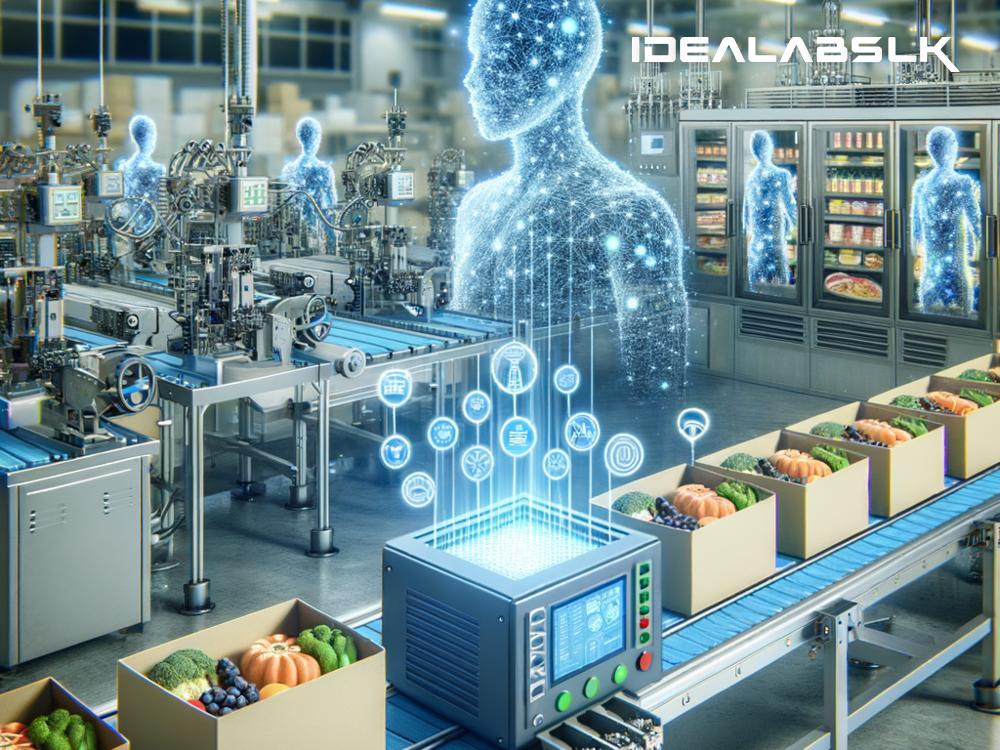The Future of Frozen Foods: Embracing AI for Adaptive Packaging
In today's fast-paced world, frozen foods serve as a cornerstone in the diets of many. From instant pizzas to ready-to-cook vegetables, the convenience they offer is unmatched. However, as our demands evolve, so does the need for innovation in how these foods are packaged. Enter the realm of Artificial Intelligence (AI) - a technology that's reshaping the frozen food industry, particularly in the area of adaptive packaging. Let’s take a closer look at how AI is revolutionizing the way we package frozen foods, making them safer, fresher, and more convenient than ever before.
Understanding Adaptive Packaging
Before we dive into the role of AI, let's understand what adaptive packaging means. In essence, adaptive packaging refers to the ability of packaging systems to adjust to the conditions around them or the needs of the product they contain. This could mean changing the environment inside the packaging to extend shelf life, or altering how the package interacts with its external environment to ensure optimal preservation of the food inside.
Why AI?
AI comes into play as the brains behind the operation. It can analyze vast amounts of data regarding temperature changes, humidity levels, and other environmental factors much faster and more accurately than humans. By doing this, AI can make real-time decisions about what kind of packaging adjustments are needed to keep the frozen food in optimal condition.
AI-Powered Sensors
One of the most exciting applications of AI in adaptive packaging is the integration of smart sensors. These sensors constantly monitor the state of the food and its environment. Is the package getting too warm? Is there too much moisture? AI can crunch the numbers and adjust the packaging conditions accordingly—perhaps by increasing the barrier properties to oxygen or moisture if it detects a risk of spoilage.
Personalized Packaging
Another intriguing aspect of AI in frozen food packaging is the potential for personalization. Imagine packaging that adapts not just to the conditions of transportation or storage, but also to the end user’s specific preferences or needs. With AI, it’s possible to create packaging that changes its properties based on how long you plan to store the food, the intended cooking method, or even dietary restrictions.
Reducing Waste
Food waste is a significant challenge around the globe, and adaptive packaging can play a crucial role in addressing this issue. By extending the shelf life of frozen foods and ensuring they stay fresh longer, AI-driven packaging solutions can significantly reduce the amount of food that gets discarded. Moreover, smarter packaging can help cut down on the need for preservatives, making the food healthier and more natural.
Custom, On-Demand Packaging
One futuristic concept brought closer to reality by AI is the idea of on-demand packaging. This could mean packaging that's created or assembled precisely at the time of need, based on the exact conditions the frozen food will face from factory to freezer. AI could calculate the best materials and packaging methods in real-time, optimizing each package for its journey and its contents.
Challenges and Considerations
While the benefits are many, the implementation of AI in adaptive packaging does face challenges. For one, the cost of developing and integrating these high-tech solutions can be significant, at least initially. There’s also the need for ongoing research and development to keep improving the technology and making it more accessible. Plus, as with all AI-driven solutions, data privacy and security are of paramount importance.
The Way Forward
Despite these challenges, the potential of AI for adaptive packaging in the frozen food industry is immense. As the technology becomes more sophisticated and more affordable, we're likely to see a shift towards smarter, more responsive packaging solutions. These innovations promise not only to enhance the quality and safety of frozen foods but also to offer an unprecedented level of convenience and personalization for consumers.
In Conclusion
The integration of AI into the packaging of frozen foods represents a significant leap forward in how we think about food preservation, safety, and convenience. With the potential to reduce waste, extend shelf life, and personalize the consumer experience, adaptive packaging powered by AI is poised to redefine the frozen food industry. As we continue to navigate the challenges and harness the power of AI, the future of frozen foods looks brighter—and smarter—than ever.

